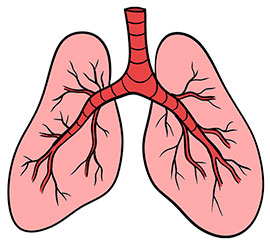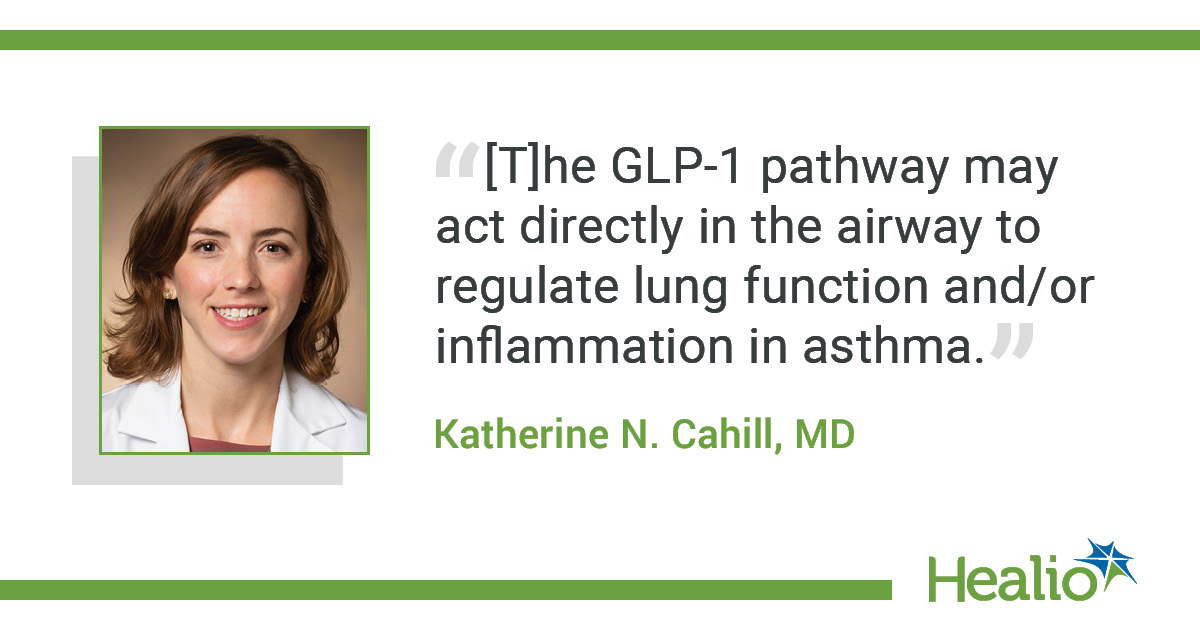Cahill Lab

Ongoing Research

GLP-1R pathway in asthma
The glucagon-like peptide-1 receptor (GLP-1R) is a promising novel therapeutic target for the treatment of asthma. GLP-1R agonists are FDA-approved for diabetes, obesity, and reduction of cardiovascular risk. In animal studies performed at VUMC, GLP-1R agonists have been shown to reduce allergen and viral-induced airway inflammation. Our observational clinical data demonstrate that GLP-1R agonists reduce asthma exacerbation risk among patients with asthma and comorbid type 2 diabetes (T2DM). We are actively working to understand how this metabolic pathway regulates airway inflammation to maximize the potential clinical benefit of GLP-1R agonists in respiratory disease.

Mechanisms of inflammation and therapeutic response in aspirin-exacerbated respiratory disease (AERD)
Aspirin-exacerbated respiratory disease (AERD) is the clinical triad of asthma, chronic rhinosinusitis with nasal polyps, and respiratory reactions to inhibitors of cyclooxygenase-1 (NSAIDs) such as aspirin and ibuprofen that develops in adulthood, often in previously healthy individuals. Patients with AERD have disproportionately severe nasal polyposis and asthma that often requires treatment with multiple topical and system therapies. We are actively working to understand the mechanisms that contribute to the severe respiratory tract inflammation and identify the best treatment options for patients with AERD.

Contribution of innate inflammation to adult asthma
The innate immune system is the first line of defense to external stimuli. In asthma, cells and mediators of the innate immune system particularly mast cells, innate lymphoid cells, eosinophils, platelets, prostaglandins and leukotrienes initiate acute and sustain chronic inflammation in the airway. Through investigation into the mechanisms by which these cells and mediators contribute to clinical disease, our goal is to identify adult asthma endotypes which are defined by a distinct mechanism and facilitate precision medicine in asthma.
Ongoing Clinical Studies

GLP-1R pathway in asthma
The glucagon-like peptide-1 receptor (GLP-1R) is a promising novel therapeutic target for the treatment of asthma. GLP-1R agonists are FDA-approved for diabetes, obesity, and reduction of cardiovascular risk. In animal studies performed at VUMC, GLP-1R agonists have been shown to reduce allergen and viral-induced airway inflammation. Our observational clinical data demonstrate that GLP-1R agonists reduce asthma exacerbation risk among patients with asthma and comorbid type 2 diabetes (T2DM). We are actively working to understand how this metabolic pathway regulates airway inflammation to maximize the potential clinical benefit of GLP-1R agonists in respiratory disease.

Mechanisms of inflammation and therapeutic response in aspirin-exacerbated respiratory disease (AERD)
Aspirin-exacerbated respiratory disease (AERD) is the clinical triad of asthma, chronic rhinosinusitis with nasal polyps, and respiratory reactions to inhibitors of cyclooxygenase-1 (NSAIDs) such as aspirin and ibuprofen that develops in adulthood, often in previously healthy individuals. Patients with AERD have disproportionately severe nasal polyposis and asthma that often requires treatment with multiple topical and system therapies. We are actively working to understand the mechanisms that contribute to the severe respiratory tract inflammation and identify the best treatment options for patients with AERD.

Contribution of innate inflammation to adult asthma
The innate immune system is the first line of defense to external stimuli. In asthma, cells and mediators of the innate immune system particularly mast cells, innate lymphoid cells, eosinophils, platelets, prostaglandins and leukotrienes initiate acute and sustain chronic inflammation in the airway. Through investigation into the mechanisms by which these cells and mediators contribute to clinical disease, our goal is to identify adult asthma endotypes which are defined by a distinct mechanism and facilitate precision medicine in asthma.




